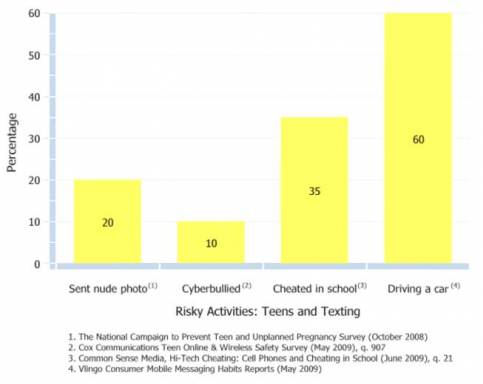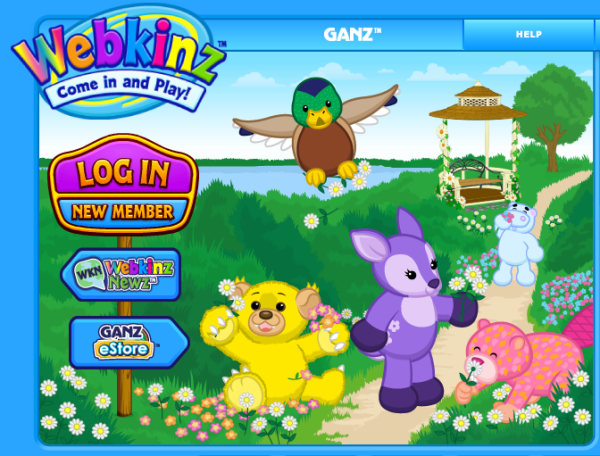 By now, all parents should be well aware of the potential dangers of cyberbullying and Internet predators on social networking sites. But social networking can also keep our kids safe in ways previously unavailable. Law enforcement is discovering how to use Facebook and MySpace as a way to identify, prevent, and protect kids from crimes.
By now, all parents should be well aware of the potential dangers of cyberbullying and Internet predators on social networking sites. But social networking can also keep our kids safe in ways previously unavailable. Law enforcement is discovering how to use Facebook and MySpace as a way to identify, prevent, and protect kids from crimes.
Many police departments now have a presence on Facebook or MySpace. By using social networking to establish a relationship with the community, police can reach out to at-risk youth and provide a teen-friendly avenue for reporting dangerous or illegal activity. Teens who know about a local gang fight that is about to happen, for example, probably wouldn't call the local police department but might find it more comfortable to tip off police through the familiar medium of Facebook or MySpace.
Preventing Child Abuse
 This past April was National Child Abuse Prevention Month. The month was dedicated to raising awareness about child abuse and, more importantly, to preventing it. The Internet adds a new dimension to child abuse, as children of all ages can become victims of online pedophiles and child pornography.
This past April was National Child Abuse Prevention Month. The month was dedicated to raising awareness about child abuse and, more importantly, to preventing it. The Internet adds a new dimension to child abuse, as children of all ages can become victims of online pedophiles and child pornography.
Protect your child by addressing the issue of child pornography early. No one – including smart kids, good kids, or happy kids – is exempt from the possibility of being victimized. Being informed is the only protection your kids have. Teach your child to avoid becoming a victim of a child predator or exploiter by:
Read More »Dangers of Online Pornography for Kids, Tweens, and Teens
 Like most families today, our family sees the Internet is an indispensable part of life as we know it. Letters written laboriously with a pen or pencil? Looking up phone numbers in a 3-inch thick Yellow Pages? Opening up a bound encyclopedia for information? Honestly, I couldn’t imagine going a day without the Internet.
Like most families today, our family sees the Internet is an indispensable part of life as we know it. Letters written laboriously with a pen or pencil? Looking up phone numbers in a 3-inch thick Yellow Pages? Opening up a bound encyclopedia for information? Honestly, I couldn’t imagine going a day without the Internet.
Even with all its charm and convenience, I have to say that seeing my oldest child reach the age where she’s starting to get online makes me more than a little apprehensive.
As a parent, I try to shield her from things that could be dangerous for her, and right now I have complete control over what comes into my home. But when she starts using the Internet, I know that there are lots of sexually explicit or violent images that she could potentially be exposed to.
The boundary between kids and online pornography is dangerously transparent. And it doesn’t just affect kids who are actively seeking out graphic material online. According to the Crimes Against Children Research Center, 25% of children have had unwanted exposure to sexual pictures in the last year.
Kids with their own email accounts, particularly free ones like Hotmail and Yahoo, inevitably get lots of spam ads for penis enlargement and “lonely girls who want to chat with you” delivered right to their inboxes.
Or they could be doing their homework and be exposed to graphic images online by accident. Try it yourself – type a female celebrity’s name into Google and click the “images” link on the upper righthand corner. The odds are pretty good that at least one suggestive or inappropriate image will come up – or more, depending on the celebrity. And Google images does not censor its pictures. Full-frontal nudity and graphic acts show up in image searches, regardless of the age of the child at the computer screen.
To compound the problem, Internet pornography is often much worse than the magazines kids a few decades ago might have passed around at school. Ernie Allen, CEO of the National Center for Missing and Exploited Children, explains that online porn “is not your father’s pornography. It is graphic, it is explicit, it is deviant. It is aberrant. Kids are seeing content that no 12 or 13 year old is mentally, psychologically, or emotionally prepared to deal with.”
If you’re like me, at this point you’re wondering if just shutting off the Internet altogether isn’t such a crazy idea, after all. But it’s not feasible in the long run, and it’s failing to address the real problem. Even if kids aren’t exposed to online pornography in your own home, they could accidentally see it in a friend’s house or even at the computers in the school library. Teach them how to react when it happens: close the browser window and tell you that they’ve seen an explicit image online.
Read More »Warning Signs of Grooming by an Internet Predator
 Most people your child meets on the Internet will be harmless, but there’s still danger in making friends online. Child predators use the Internet to meet children and form relationships with them, the end result of which is to molest or abuse them in the future. This process is known as “grooming,” and it’s vital that you recognize grooming while it’s happening, so you can stop it before it goes too far.
Most people your child meets on the Internet will be harmless, but there’s still danger in making friends online. Child predators use the Internet to meet children and form relationships with them, the end result of which is to molest or abuse them in the future. This process is known as “grooming,” and it’s vital that you recognize grooming while it’s happening, so you can stop it before it goes too far.
Predators groom children by lending a listening ear, making them feel special, treating them “like a grown up,” introducing sexual speech or pornography to make such acts seem more acceptable, encouraging secrets, and introducing them to other adult behaviors like drinking and doing drugs.
Text Lingo Every Parent Should Know
Whether we’re talking about text lingo, friending people online or the pictures our kids post online, the best tool to minimize risky behavior online is our active involvement. Most children, teens included, say that their parents are the strongest influence over the decisions they make.
But even kids that have active parents make mistakes and sometimes we have to protect our kids from other people. Therefore it is important that you are at least familiar with some of the text lingo terms that would indicate your child could be headed for trouble. Here is a small sample:
Don't Talk To Strangers: Facebook Monitoring
 In March, Ashleigh Hall’s name was splashed across newspapers everywhere after her body was found in a ditch. The 17-year-old had done something that a worrisome number of teens do: made a new friend on Facebook and gone to meet him.
In March, Ashleigh Hall’s name was splashed across newspapers everywhere after her body was found in a ditch. The 17-year-old had done something that a worrisome number of teens do: made a new friend on Facebook and gone to meet him.
A 2006 survey commissioned by Cox Communications with the National Center for Missing & Exploited Children reported that:
- 71% of teens reported receiving messages online from someone they don’t know
- 45% have been asked for personal information by someone they don’t know
- 30% have considered meeting someone that they’ve only talked to online
- 14% have actually met a person face-to-face that they’ve only talked to on the Internet (the figure for teens ages 16 and 17 jumps to 22%)
In Ashleigh’s case, her new friend was a predator who had lied about his identity, posing as a 17-year-old boy. Many were quick to point fingers at Facebook: can’t they do more to prevent people from lying about who they are online?
Read More »Photo Sharing Site Safety for Parents
 Photo sharing websites like Flickr, PhotoBucket, and Shutterfly are becoming extremely popular. Signing up for a free account only takes a few minutes, and then you can upload all your family pictures, add captions, and share them with friends and relatives. Photo sharing sites are a great way to stay in touch with out-of-state relatives or catch up with friends you don’t see very often. And let’s face it – pictures of your own kid are too cute not to showcase. But many parents are using photo sharing sites much too freely, and it may be compromising the safety of their kids.
Photo sharing websites like Flickr, PhotoBucket, and Shutterfly are becoming extremely popular. Signing up for a free account only takes a few minutes, and then you can upload all your family pictures, add captions, and share them with friends and relatives. Photo sharing sites are a great way to stay in touch with out-of-state relatives or catch up with friends you don’t see very often. And let’s face it – pictures of your own kid are too cute not to showcase. But many parents are using photo sharing sites much too freely, and it may be compromising the safety of their kids.
Kids Safety Question: Could Your Kids Be Building An Army of Webkinz?
Being online doesn't just refer to the computer located in your kitchen. Kids access the Internet from laptops, mobile phones, gaming consoles and handheld devices. Are your kids building an army of Webkinz? Are you worried your teen will have arthritic thumbs from texting too so much? If this sounds familiar, let's talk.
Obviously technology has a ton of benefits to our children but you may be concerned about what they're doing in the world of bits and bytes and what decisions they're making. If you're not concerned, you are probably at least at least curious. Most of us don't fully understand some aspects of the technology that our kids are using. The good news is that you can become more familiar with technology and you can learn about the issues that affect your kids online. These issues include cyberbullying, revealing too much and predators.



